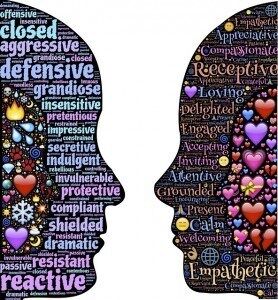Empathy
The Difference Between Being an Empath and a Person Who Gives Too Much
Empath, over-giver, or both?
Posted January 12, 2021 Reviewed by Gary Drevitch

We live in the world with many people. Some are heartfelt and uplifting to be around. Others are more difficult. It’s important to find a comfortable way of relating to people so that you can develop a harmonious interdependence rather than being over-giving.
When you’re interdependent you have a healthy reliance on others in your personal life, at work, and in the greater world. You depend on each other for support, respect, and to perform particular tasks such as collaborating on a project, raising children, participating in team sports, or hiking with a group. In contrast, over-giving is an unhealthy form of dependency. This occurs when you are more focused on another person’s life and problems than your own. You are reluctant to assert your needs or set clear boundaries for fear of the consequences.
There’s a joke that when an over-giver dies, it is your life that passes in front of their eyes. Over-givers feel overly responsible for people and pick up the slack in relationships and work. If you give too much, it can be hard to pull back and let others travel their own paths. You may want to over-help or fix people, believing that if you don’t intervene something terrible will happen—a habit you might have learned from living with an alcoholic or anxious parent.
In Thriving as an Empath, I emphasize that empaths can have these tendencies but that not all over-givers are empaths. The difference is that empaths absorb the stress, emotions, and physical symptoms of others, something not all givers do. As a highly empathic person, practice protection techniques such as shielding and meditation to deal with the energy absorption issue, which isn’t as intense an issue for a pure over-giver. However, for both empaths and givers, setting boundaries and seeing others as separate, and not simply an extension of yourself, is also part of healing. You are still present, but you can be a great listener and a loyal friend without taking on someone’s problems.
Spend some time journaling about your relationships. Which are interdependent? Which are too dependent? List a few constructive steps you can take to make all relationships more balanced—for example, checking up on someone less often, setting a clear boundary, or letting others make and learn from their own mistakes. Then, one by one, begin to reshape your relationships and appreciate your interdependent ones.
Set your intention:
- I will thoughtfully examine and heal my over-giving issues and seek a healthy interdependence in my relationships.
- I will stop obsessing about others and focus on my own self-care.
- I can be a giving person while maintaining healthy boundaries.
References


